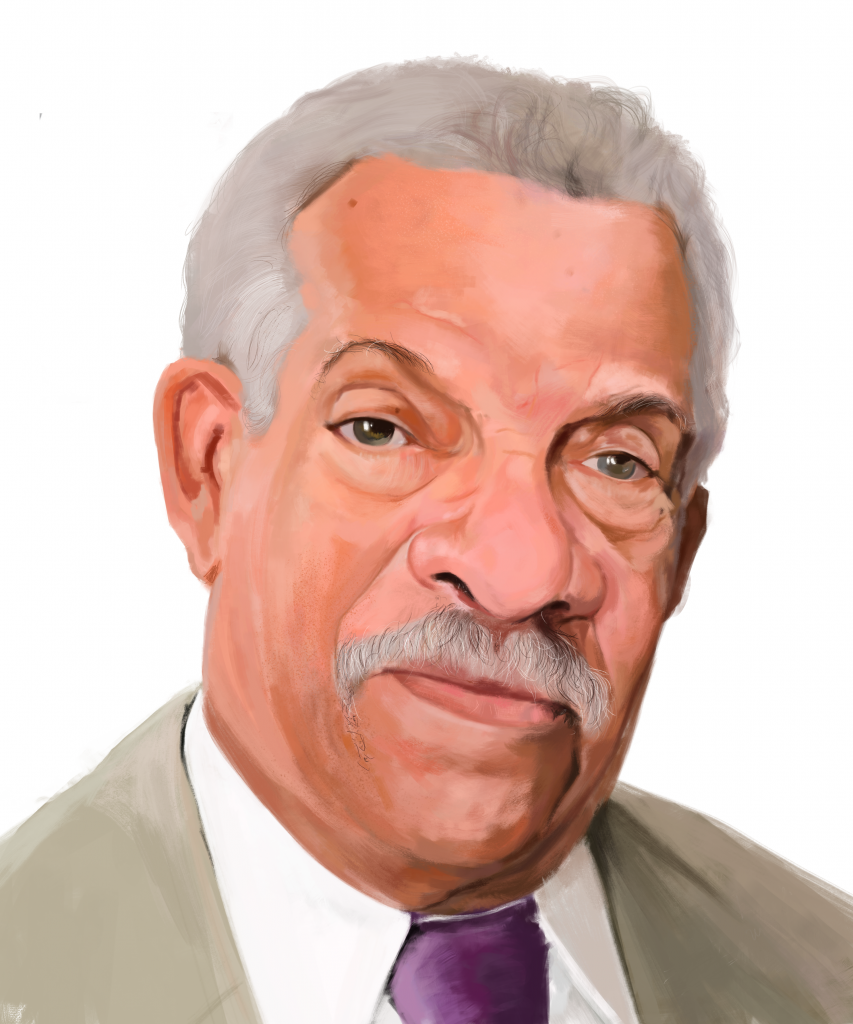
The work of Derek Walcott was probably among the first poetry I heard. My father often recited Walcott’s As John to Patmos in a wonderful declamatory yet subtle way in the house. Of course, I had no idea what the poem was about at that time — or maybe I did. Maybe my understanding of it was not on the semantic level, but that I was experiencing another perhaps often ignored aspect of the poem. Recently, over drinks with some artists, three of whom were from India, we were discussing the declamatory nature of some Indian and Yoruba poetry, and how the achievement of certain rhythmical patterns take precedence over the semantic in the reciting of the poems. This harks back, of course, to poetry’s relationship with song. So I was being sung to by my father, by Walcott’s work, from the time I was a child.
Toward the end of my schooling in Saint Lucia, I had been reintroduced in a comprehensive way to Walcott’s poetry. Since then, I had encountered him mostly through his plays as part of the drama club at my alma mater, Saint Mary’s College. At Sir Arthur Lewis Community College, we were required to study a selection of Walcott’s work edited by Trinidadian writer and critic, Wayne Brown; and, I should add, we were being taught by eminent Saint Lucian poet, Kendel Hippolyte. The work resonated with me, and introduced me to the unfathomable depths of meaning and metaphor and meaning through metaphor that existed, and I took great pleasure in plumbing these depths, to crack their code so to speak. I also found one of Walcott’s poems — the love of which, I recently learned, I share with Jamaican poet laureate Lorna Goodison — A Careful Passion to speak directly to my amorous relations at that time, except of course that I was exaggerating the gravity and depth of such amorous relations as we are all wont to do.
The final phase, and the most lasting, of my relationship with Walcott has been as a practicing poet. Any look at post-Walcott Saint Lucian poets will reveal to you the individual pursuits, aims, aesthetic and otherwise, of these poets. They are, commendably, quite independent of Walcott’s towering influence on the idea of poetry in St. Lucia and how he had written it. What I think all of us can agree, however, is that we have not escaped his influence as one who believed in poetry, as serious work and labour— that is, something one devoted oneself to and worked hard at, worked fiercely at mastering. Walcott’s shadow is one of admonition of anything mediocre or shoddily done, or lazy. Industry, I think is Walcott’s greatest legacy and it is no small thing. To pursue poetry, this seemingly sedentary, quixotic and sporadic activity, as serious, let alone work is difficult to do generally with support and understanding around one, and perhaps even more alien in an environment where physical labour takes the lion’s share of our understanding of work— that, and something which pays a salary at the end of the month and keeps one’s creditors away. Poetry therefore is difficult to reconcile with the sense of Time we have been given by salaried work, or day-labour. And yet, for Walcott, it is not only necessary to do it, but it is one that ought to be done with mastery or not done at all. In that way, Walcott’s gift to me, and to other writers in Saint Lucia and wherever else he has influenced them, is to do the thing that all poets crave, the ability to not just sound like themselves (rather than ape his work), but to sound and be their best selves, to obtain the spiritual virtues that await one who is disciplined and who works hard at what one loves, and what one is called to do.







